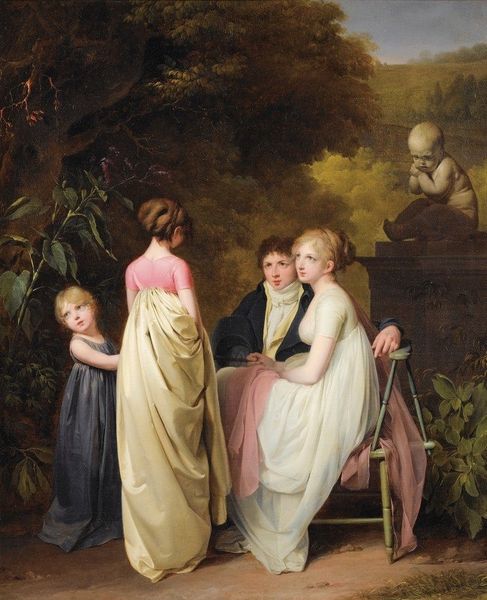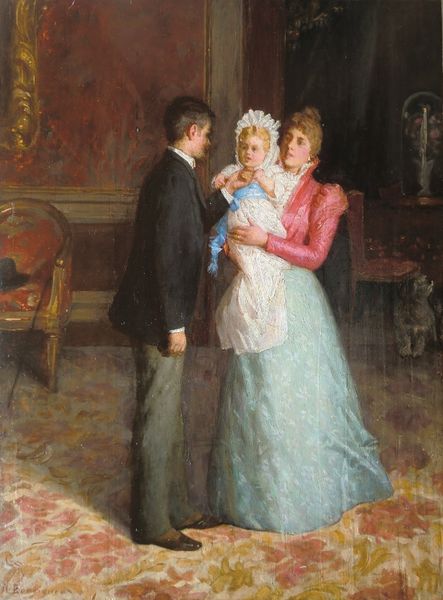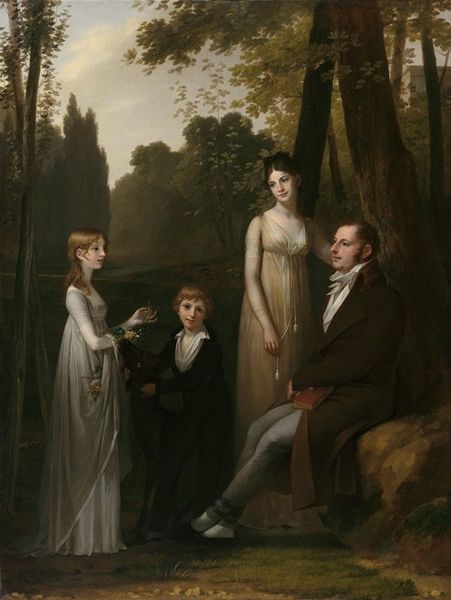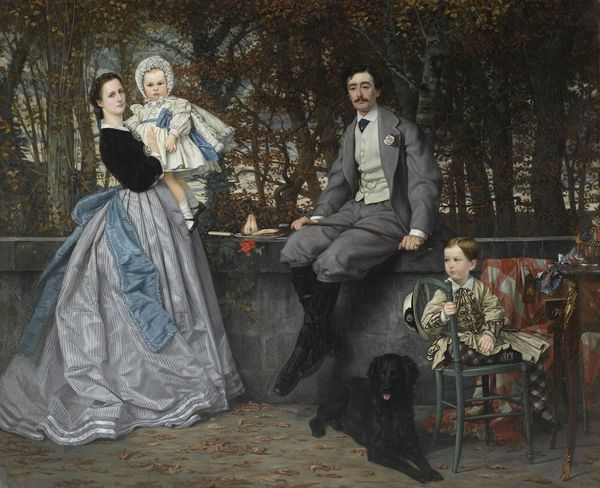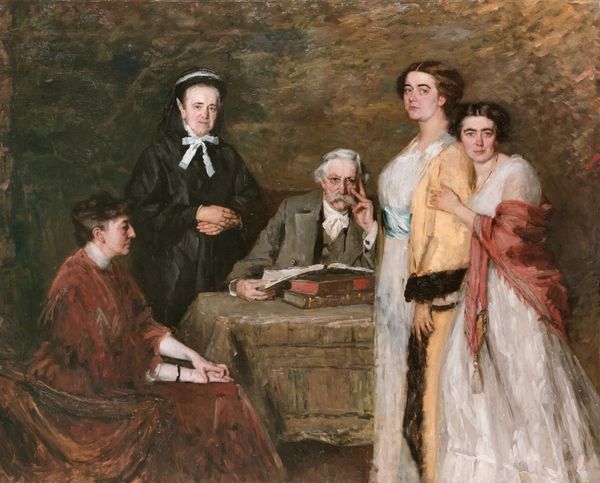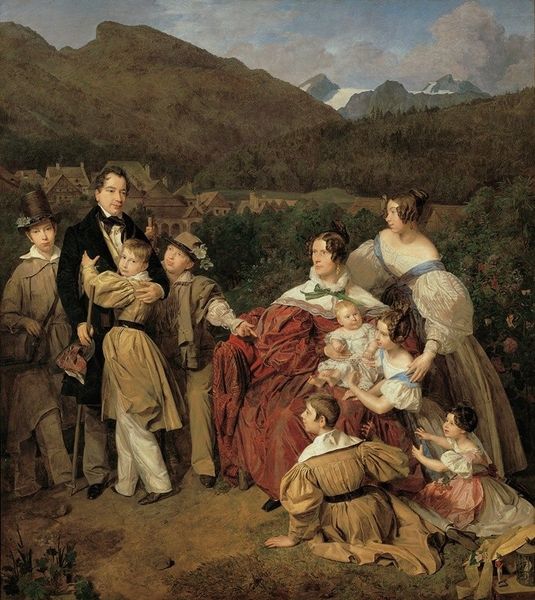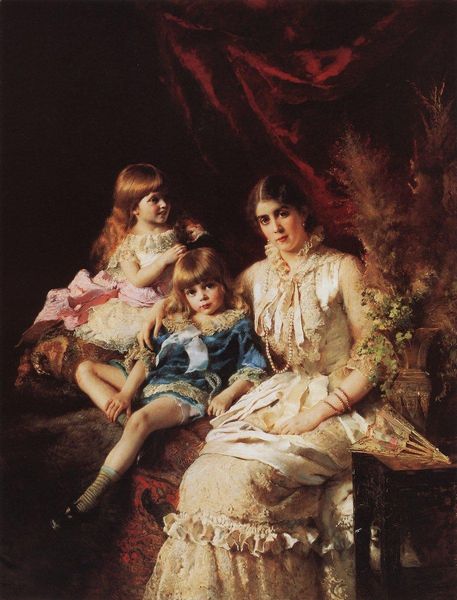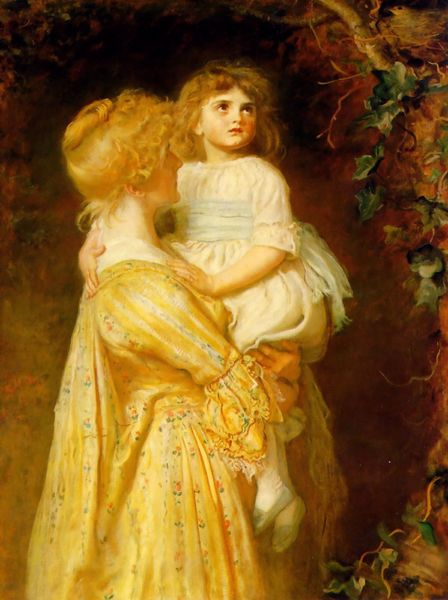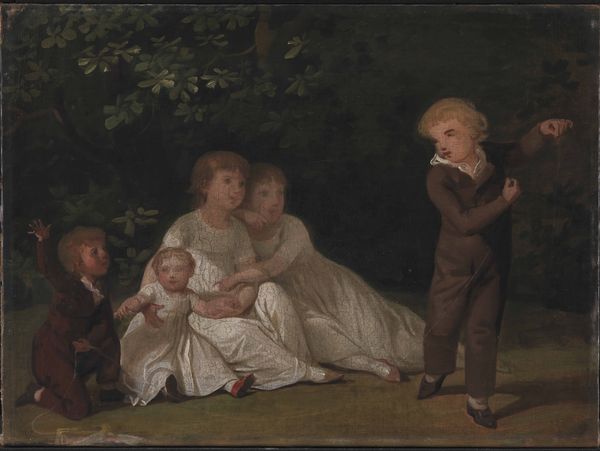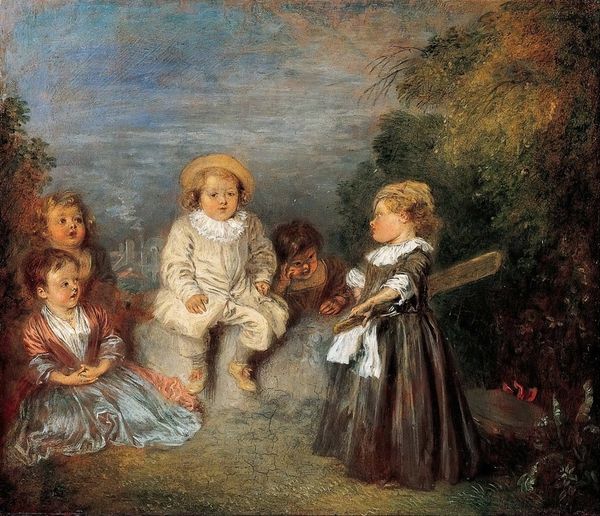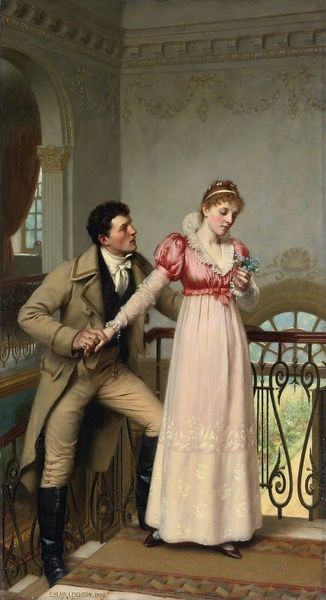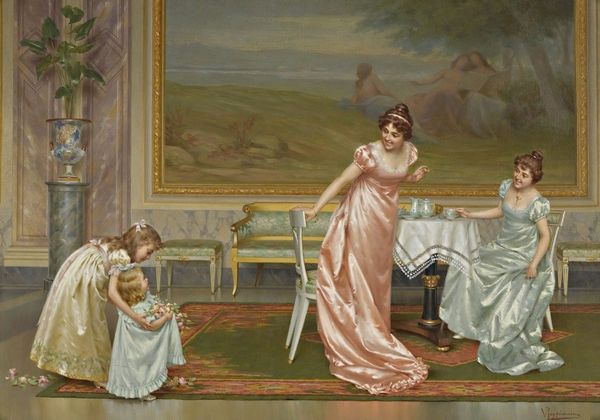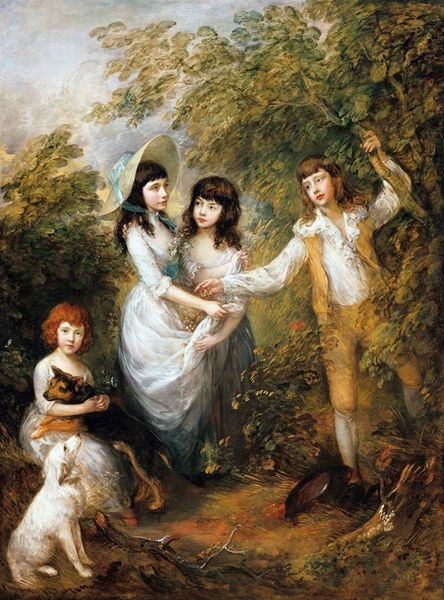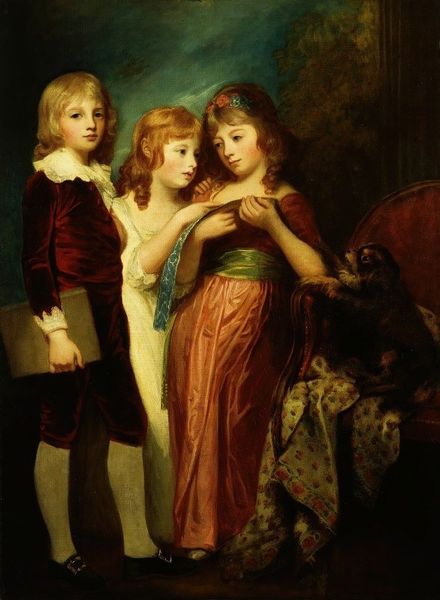
oil-paint
#
portrait
#
gouache
#
figurative
#
oil-paint
#
figuration
#
oil painting
#
romanticism
#
genre-painting
Copyright: Public Domain: Artvee
John Collier painted "The Garden of Armida," a view of upper-class leisure, sometime between 1850 and 1934, the years of his life. The visual codes of wealth are on full display. The man's formal attire suggests he is a member of the British gentry. Surrounded by women in luxurious dresses in a lantern-lit garden, he seems to be enjoying a life of excess. But is he really? His face is far from joyous; he seems burdened by the women's attention. Collier, a product of the Victorian era, knew how to paint a picture of moral ambiguity. The narrative is influenced by earlier Pre-Raphaelite paintings that reference Classical literature, making it a very self-conscious work. To understand its meanings fully, we would want to research the institutions of art production and consumption that supported Collier's work.
Comments
No comments
Be the first to comment and join the conversation on the ultimate creative platform.
